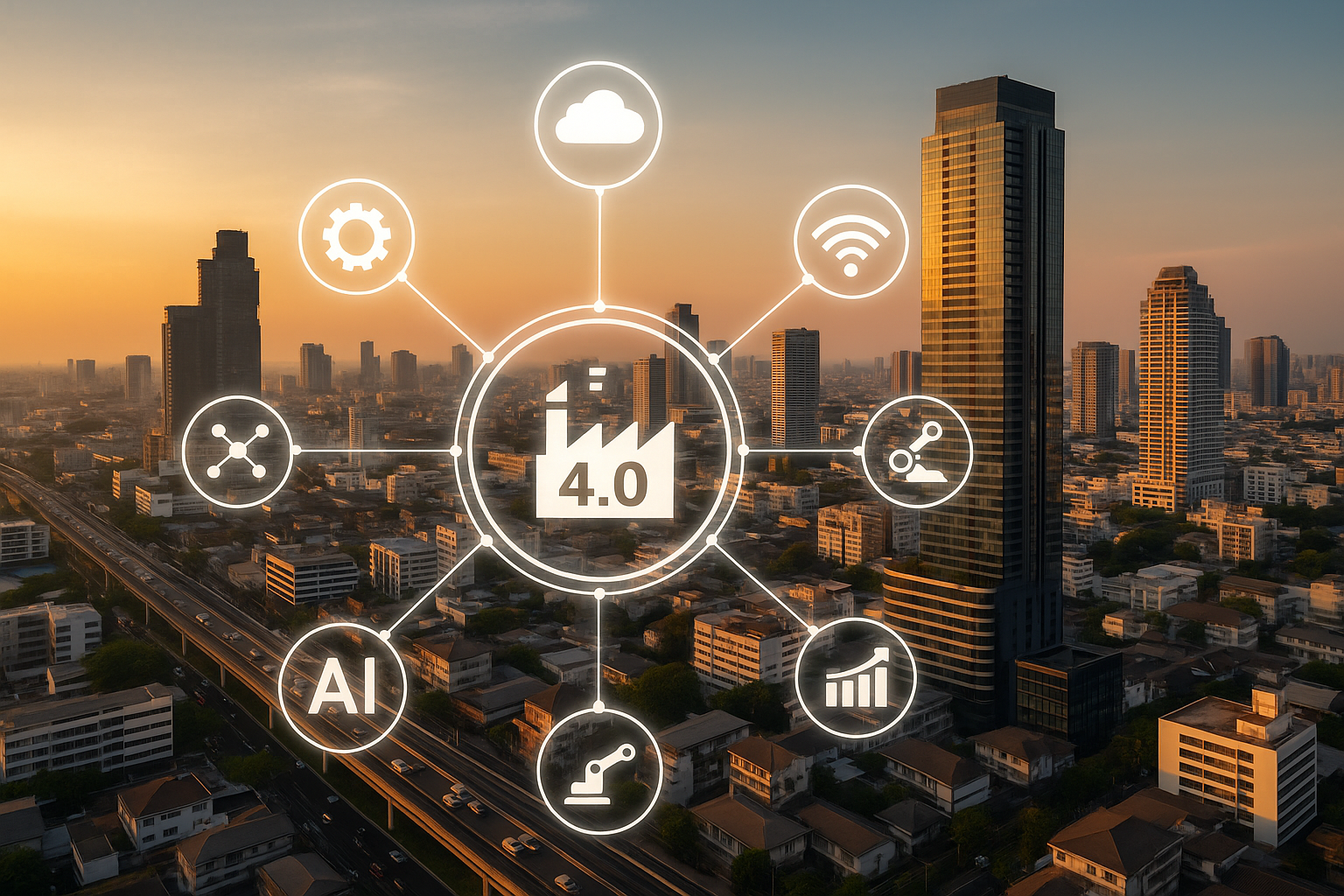Future of cities: Industry 4.0 promises sustainability but demands careful oversight
In terms of infrastructure, IoT and digital twins allow cities to optimize resource use and reduce emissions, supporting climate goals. AI improves service delivery, making governance more responsive and tailored to citizen needs. Blockchain ensures secure data handling and can build trust in public services by providing tamper-proof records.

With rapid urbanization, cities across the globe are racing to transform into smart, sustainable, and citizen-centric hubs. A new study published in Sustainability uncovers how Industry 4.0 technologies are driving this evolution, reshaping urban infrastructure and governance while raising pressing questions about privacy, costs, and ethical use.
The research, titled "Exploring the Role of Industry 4.0 Technologies in Smart City Evolution: A Literature-Based Study", systematically reviews global applications of cutting-edge technologies, such as IoT, AI, blockchain, robotics, and digital twins, within the smart city context. By analyzing publications from 2016 to 2023, the study provides a comprehensive look at how these tools are redefining urban life, where they succeed, and where they fall short.
Which industry 4.0 technologies are driving smart city transformation?
The study reveals that Internet of Things (IoT) technology is the backbone of smart city initiatives. Its ability to connect devices, sensors, and networks enables real-time data collection critical for managing transportation, energy, waste, and environmental systems. IoT supports smarter traffic flows, energy conservation, and pollution monitoring, laying the foundation for automated urban ecosystems.
Artificial Intelligence (AI) emerges as another central enabler, powering predictive analytics and adaptive decision-making. AI applications range from optimizing energy grids to managing emergency responses and personalizing citizen services. For example, AI can analyze mobility patterns to ease congestion or predict air quality changes, allowing cities to take proactive measures.
The research highlights the growing role of big data analytics and digital twins in urban planning. Digital twins, virtual replicas of physical systems, are increasingly used to model city infrastructure, simulate traffic, and evaluate emergency response strategies. These tools allow policymakers to make data-driven decisions while reducing risks and costs associated with large-scale interventions.
Other technologies, such as blockchain, robotics, and augmented reality (AR), are also reshaping urban services. Blockchain enhances security and transparency in transactions, governance, and supply chain operations. Robotics and drones contribute to areas like waste collection, public safety, and urban inspections. AR supports city visualization, tourism promotion, and citizen engagement.
Together, these technologies are weaving an interconnected digital fabric that supports the transition to smarter, more efficient urban environments.
What are the implications for urban development and communities?
The authors stress that Industry 4.0 technologies are not just tools, they are catalysts for economic, social, and environmental transformation. Their integration leads to enhanced sustainability, greater economic efficiency, and improved quality of life for citizens.
In terms of infrastructure, IoT and digital twins allow cities to optimize resource use and reduce emissions, supporting climate goals. AI improves service delivery, making governance more responsive and tailored to citizen needs. Blockchain ensures secure data handling and can build trust in public services by providing tamper-proof records.
Economically, these technologies open new markets and encourage innovation. Startups and tech companies find fertile ground in cities investing in Industry 4.0, stimulating job creation and economic diversification. However, these benefits come with caveats. The study warns that the cost of upgrading infrastructure and maintaining complex digital systems remains a significant barrier, particularly for developing nations.
For communities, smart technologies promise improved healthcare, safer transportation, cleaner environments, and faster responses to crises. However, the research also raises concerns about data privacy and cybersecurity. As cities collect massive volumes of personal and environmental data, questions arise about who controls the data, how it is used, and whether citizens’ rights are adequately protected.
The study further notes that digital inequality, where some communities lack access to the technologies shaping their cities, can deepen social divides. Without targeted policies to bridge these gaps, smart city development risks leaving vulnerable populations behind.
What challenges must be overcome for future smart cities?
While the potential of Industry 4.0 is vast, the study identifies several critical challenges that need immediate attention. High implementation and maintenance costs pose obstacles for many urban centers, requiring innovative funding models and stronger public–private partnerships.
Data privacy and cybersecurity emerge as pressing concerns. The reliance on interconnected systems makes smart cities attractive targets for cyberattacks. The authors emphasize that without strong security frameworks, the risks could outweigh the benefits.
The research also highlights the lack of standardization in smart city projects. Different technologies often operate in silos, limiting interoperability. For cities to fully leverage Industry 4.0, systems must be able to integrate seamlessly. Establishing global standards would facilitate smoother adoption and prevent fragmented development.
In terms of ethical considerations, AI-driven decision-making must be transparent, accountable, and free from bias. The study calls for ethical regulations and guidelines to ensure technologies serve all citizens equitably rather than reinforcing existing inequalities.
The authors recommend several strategies to overcome these hurdles in future. They advocate for open data platforms, ethical AI frameworks, digital education programs, and robust cybersecurity measures. Cities must also invest in interoperability to ensure different systems work cohesively and deliver maximum value.
- FIRST PUBLISHED IN:
- Devdiscourse










